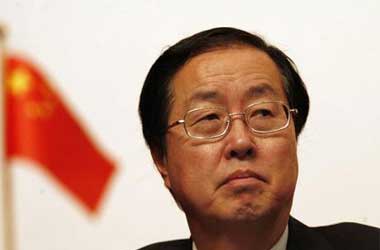 China’s volatile market has caused serious concerns for a number of countries wiping out billions of dollars in trading. While market analysts believe that this trend in China will continue in 2016, Zhou Xiaochuan, the governor of the People’s Bank of China (PbOC), which is the country’s Central Bank played down these concerns in an attempt to bring calm to a shaken market.
China’s volatile market has caused serious concerns for a number of countries wiping out billions of dollars in trading. While market analysts believe that this trend in China will continue in 2016, Zhou Xiaochuan, the governor of the People’s Bank of China (PbOC), which is the country’s Central Bank played down these concerns in an attempt to bring calm to a shaken market.
China’s foreign reserves have fallen significantly and have reached a record low when compared to the last four years. The Institute for International Finance has reported that China was forced to send out nearly $113 billion during January 2016 in an attempt to try and arrest the fall of its currency. The governor stated that this trend will not continue for long and the renminbi will stabilize within a short period of time.
In a statement Xiaochuan said
The total trade surplus in 2015 was close to $600bn and net export’s contribution to gdp was not low so there’s no motive to depreciate the renminbi for the sake of net export expansion. The bank will use a basket of currencies as a reference and appropriately manage any daily volatility in the renminbi against the dollar as well as using a wider range of economic data.
China and its central bank has received a lot of criticism from international markets over the fact that they were not very transparent with their dealings and were not keen on sharing information with the international community. This was the first time in a number of months that a senior executive from the Central Bank decided to shed more light on the turmoil of China’s market.
Xiaochuan defended Beijing and the policy of the Central Bank by stating that they are not magicians to wipe out all uncertainties just because certain international parties felt under pressure. The governor went on to say that sometimes information is not released because the PbOC has to wait on new data to be fully updated with relevant stats and figures.
The governor also hit out at market speculators who were targeting China and the renminbi stating that the Central Bank will not be influenced by these speculators and instead will continue to remain patient and let the market decide on the currency fluctuation and levels which will help determine a more flexible forex rate.
A number of market analysts in China welcomed this update from the governor of the Central Bank and believe this effort to improve communication and transparency will bring more stability to China and global markets.




